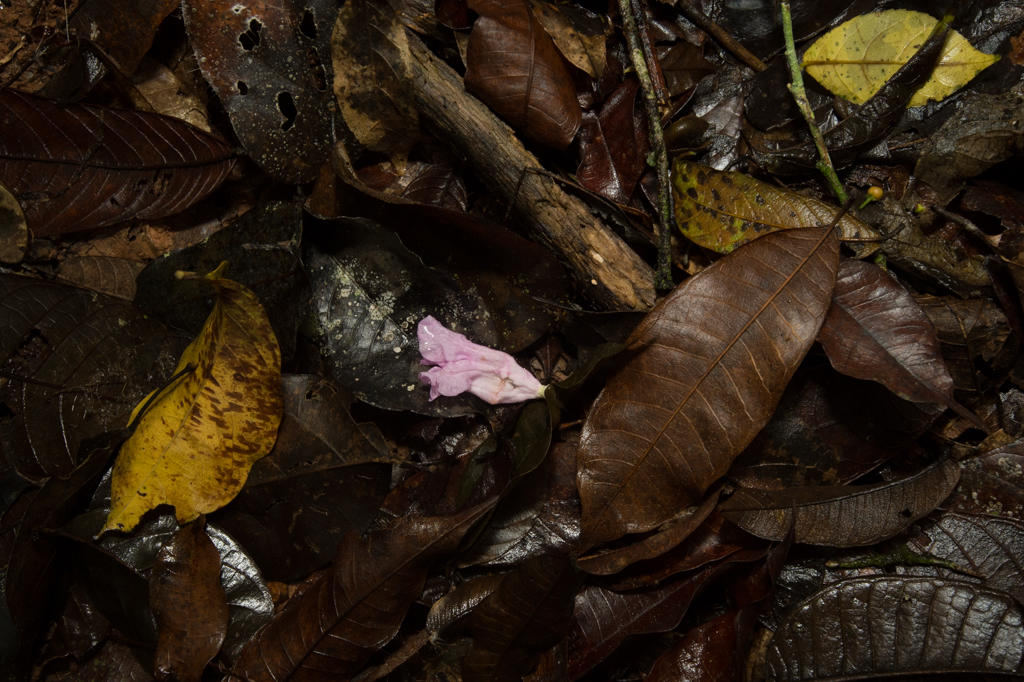Bacteria and other tiny organisms love the tropical rainforest. This is because the hot and humid climate allows bacteria and other organisms to grow and thrive. This may sound yucky, but the health of the rainforest depends on them.
These bacteria, fungi and other microorganisms have a very important job — they break down dead and dying matter. This process is called decomposition. As dead plants and animals are broken down, the remains are recycled back into the soil. These remains contain important nutrients that help feed new growth.
Here is how it works: because the climate of the rainforest allows for speedy decomposition, very little in the way of nutrients finds its way into the soil. What gives the plants the nutrients they need are the bacteria, fungi and other microorganisms that are busy breaking down and recycling nutrients. These come from everything from leaf litter, rotting wood, dead animals and even animal poop!
These bacteria, fungi and other microorganisms have a very important job — they break down dead and dying matter. This process is called decomposition. As dead plants and animals are broken down, the remains are recycled back into the soil. These remains contain important nutrients that help feed new growth.
Here is how it works: because the climate of the rainforest allows for speedy decomposition, very little in the way of nutrients finds its way into the soil. What gives the plants the nutrients they need are the bacteria, fungi and other microorganisms that are busy breaking down and recycling nutrients. These come from everything from leaf litter, rotting wood, dead animals and even animal poop!

Without the help of bacteria and other microorganisms, dead plants and animals would just sit on the rainforest floor. Over time, these dead things would just pile higher and higher with no place to go. So you can see why decomposition plays such an important part of helping to keep the rainforest healthy.
Why is decomposition so important to keeping an ecosystem healthy? What are examples of decomposition and recycling by nature where you live?
Why is decomposition so important to keeping an ecosystem healthy? What are examples of decomposition and recycling by nature where you live?
Rainforest Kids Science curriculum connection: Unit 1: Chapter 1, Lesson 1, Grades 3+5

